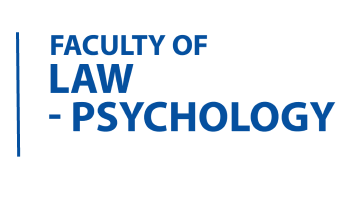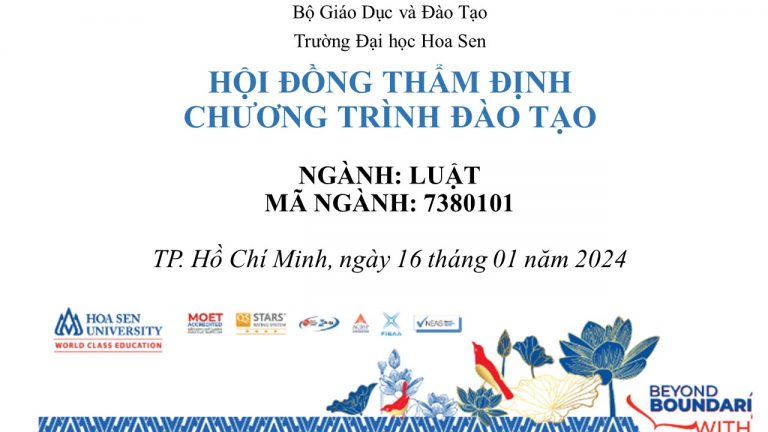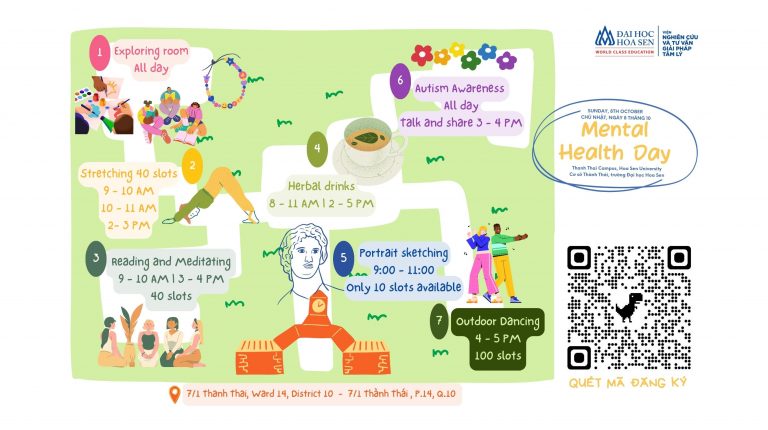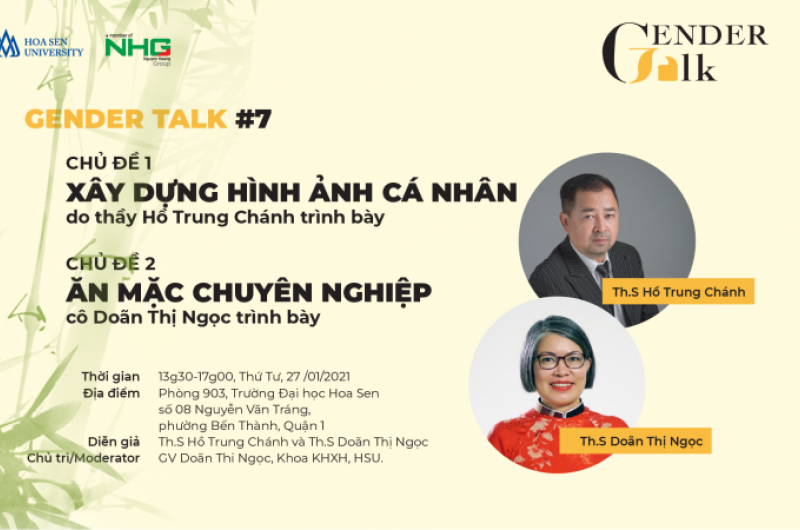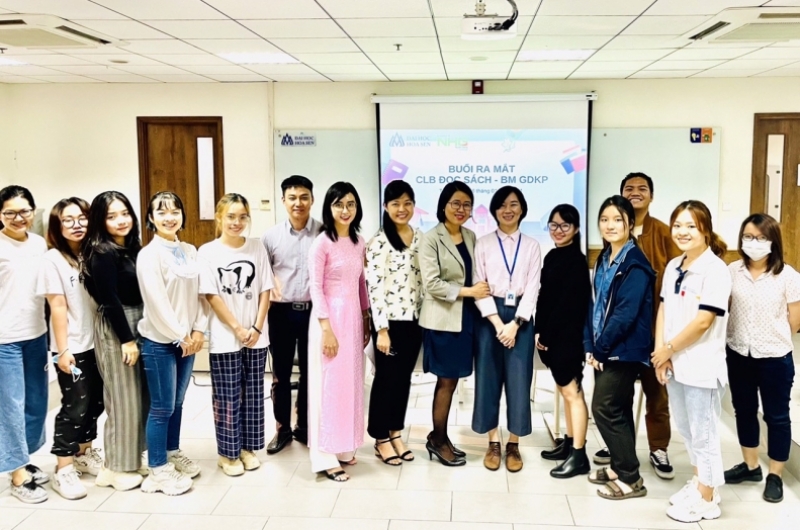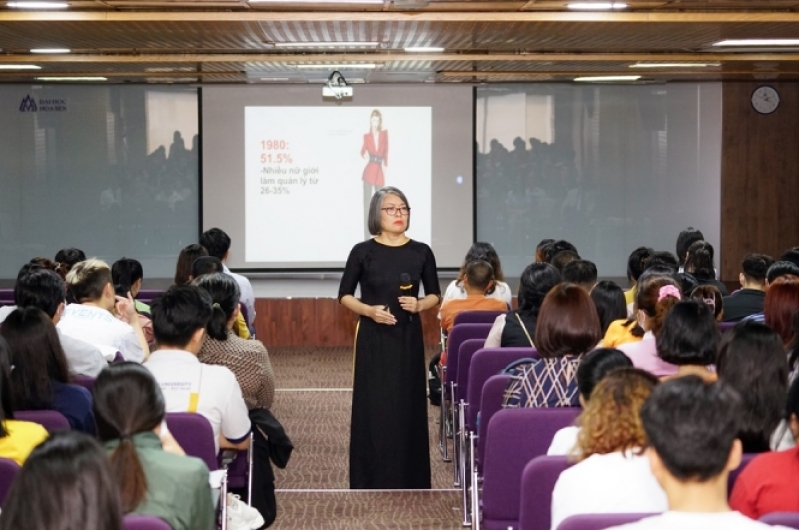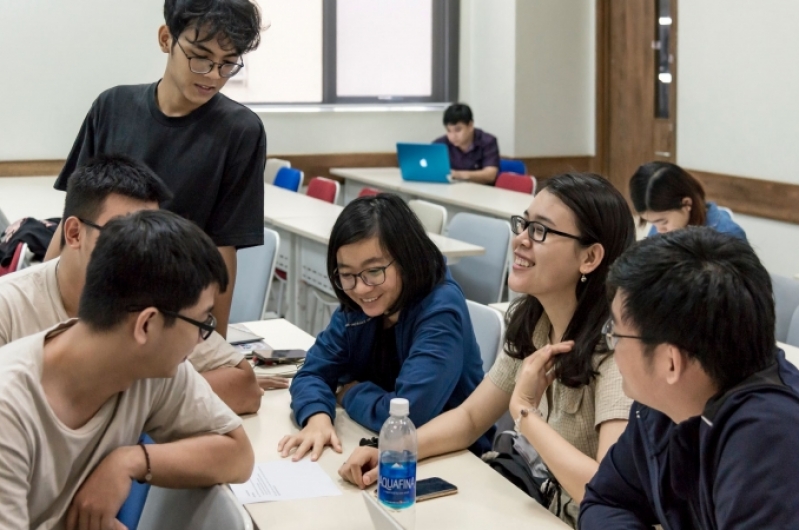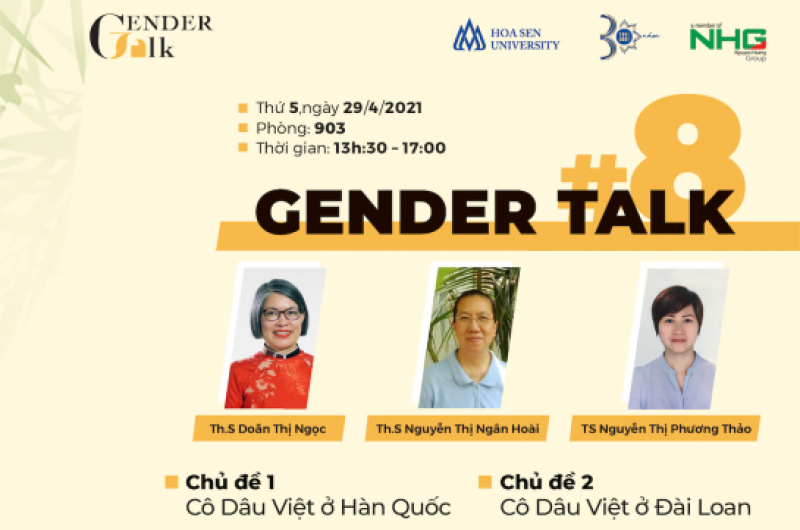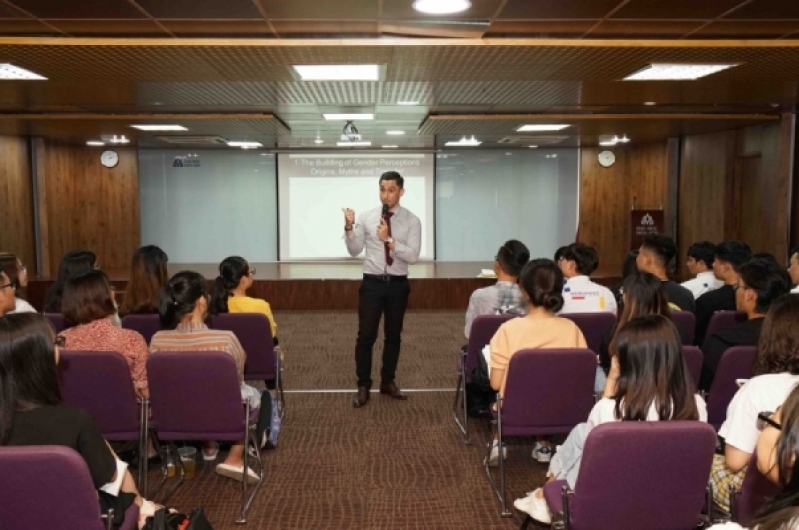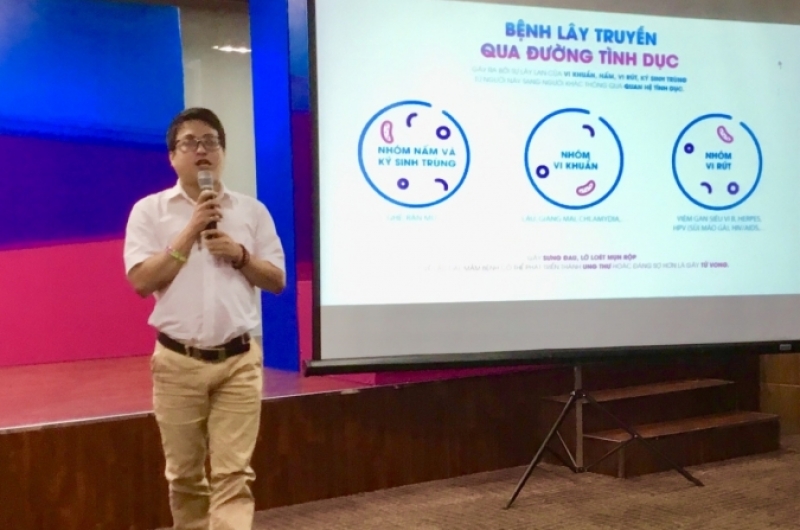Discussion “Our Vietnamese”: Concerns about using Vietnamese
November 23, 2020
On the morning of November 19, 2020, the Faculty of Social Sciences organized a discussion titled Our Vietnamese presented by journalist-writer Duong Thanh Truyen, Chairman of the Board of Directors of Tre Publishing House, presented at the school. Hoa Sen University (Nguyen Van Trang campus). Attending this discussion were lecturers, researchers, and students inside and outside the University. In particular, the discussion was also honored to welcome the presence of an Associate Professor. Dr. Luu Tien Hiep, former principal of the school.
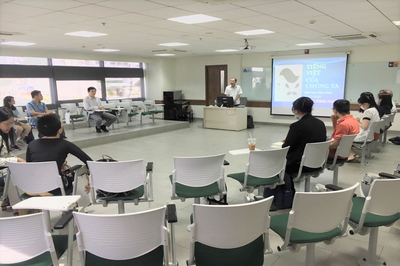
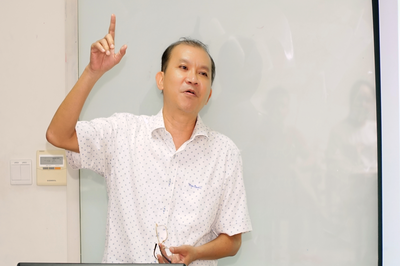
Overview of the seminar and speaker Duong Thanh Truyen.
With expertise and experience of 5 years as a high school literature teacher, 12 years as a journalist, nearly 10 years in the publishing field, and 25 years as a speaker for skills – personal training – vocational courses. career for young people, Mr. Truyen fostered a deep love of Vietnamese, a unique Vietnamese treasure over time, and a great concern for using Vietnamese correctly and well in both the academic and academic fields. among the common people. With a flexible communication style and many diverse illustrative examples, in the opening section entitled I love my country’s language of the discussion, Mr. Truyen “treated” the attendees to a “feast” of demonstrative words. for the vivid meaning and abundant vitality of the Vietnamese language. His examples show that, in terms of phonetics, Vietnamese can be used with rhythm, alliteration, and rhyme like poetry – like music; Creating convenience thanks to the rules of diacritics, inflection, or changing the position of words in a sentence. Such as :
“Well, while the big man was playing such a big game, everywhere in that region, water was overflowing, swirling into deep abysses, houses were floating, rice was flooded: the living had no place to live, the dead had no place to live. the burial place, floating on the water, the helpless shadow, the sad situation, how can you tell!”
(Live or die, Pham Duy Ton)
Lots of money for what?
What to do to make a lot of money?
What’s the use of so much money?
From a lexical perspective, he also cited many interesting ways of changing Vietnamese, such as using mixed words or separating words, homophones, bilingual combinations, etc. Some examples can be mentioned:
Boss and leader: It doesn’t seem different, it’s unimaginably different (Zing)
Teenagers stride into life (Title of a book)
The second part of the content presented by Mr. Truyen is no less current and important to give a correct understanding of Sino-Vietnamese words, titled: Sino-Vietnamese words are Vietnamese. He points out groups of Sino-Vietnamese words that exist and are used so often that we forget their original Chinese characters, such as the words “top” (the pure Vietnamese word is “troc”), “room” ( The pure Vietnamese word is “chamber”)… Besides, there is also a group of Sino-Vietnamese words formed because Vietnamese does not have those words, such as “dumplings”, “sausage”,… which are Vocabulary for unique Chinese dishes. Another part of Sino-Vietnamese words is transformed according to the order and pronunciation of Vietnamese.
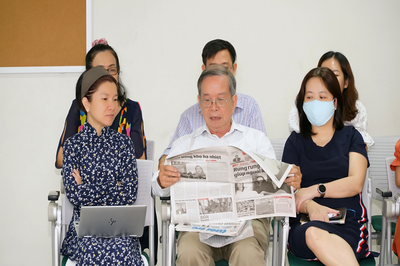
Associate Professor. Dr. Luu Tien Hiep (center of the frame) is pointing out some errors in using Vietnamese in Tuoi Tre newspaper.
The participants had the most lively exchange when Mr. Truyen pointed out many errors in the use of Vietnamese in the newspaper when talking about the section on Current Vietnamese Language Reality. In this section, Associate Professor. Dr. Luu Tien Hiep brought to the discussion Tuoi Tre newspaper quite basic mistakes and shared his concerns and frustrations about the negligence of a major newspaper. Some students also expressed concern about the quality of language in the press and wanted to find channels, tools, and methods to use Vietnamese better. Mr. Truyen himself also made recommendations for lecturers and students in the educational environment: Cultivate a love of Vietnamese in students, lecturers set an example of using pure Vietnamese while raising awareness and skills. efforts to use Vietnamese, establishing a school-level Terminology Council as a forum to criticize and unify the use of terminology in the academic field.
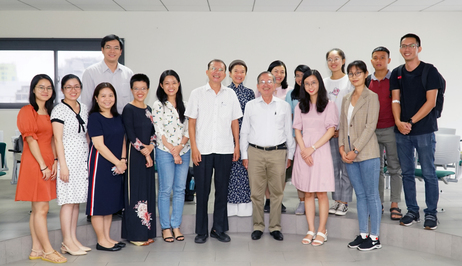
Speakers and attendees took souvenir photos.
Closing this discussion, the Faculty of Social Sciences promised to open a talk with a similar topic for students at Hoa Sen University shortly.
Kieu Trinh and Tra Mi recorded.
Photo source: Department of Communications and Admissions, and Faculty of Social Sciences, Hoa Sen University.
